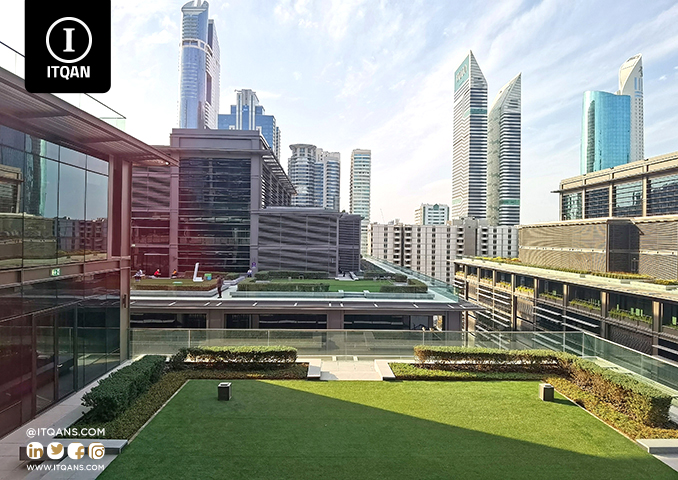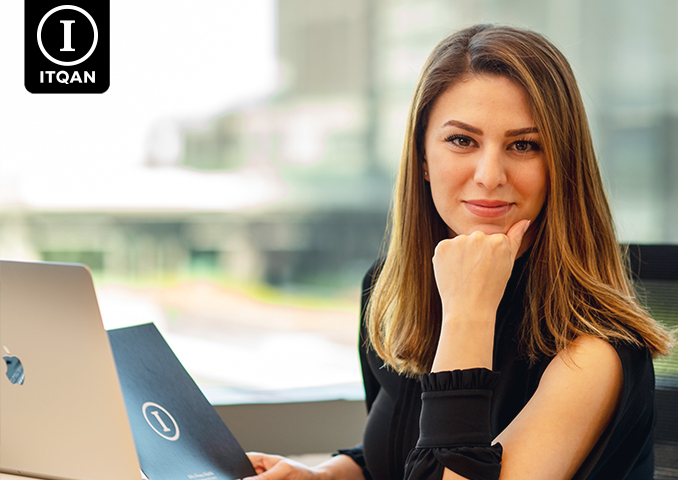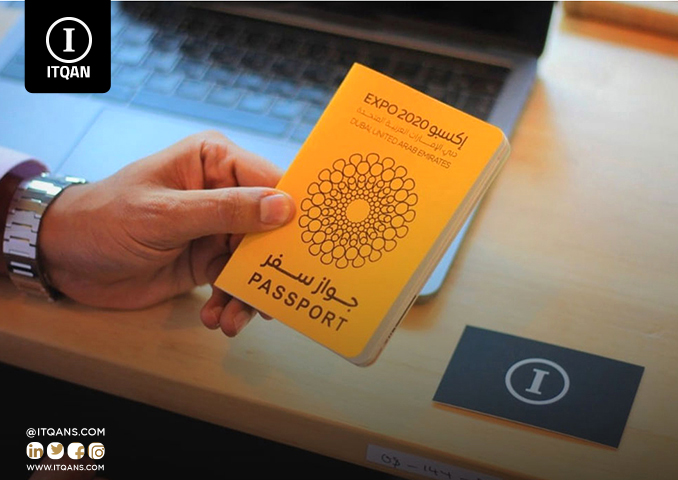The process of opening a commercial registration in the UAE is a crucial step for individuals and companies wishing to start business in this dynamic and prosperous country. In order to successfully achieve this goal, everyone should carefully understand the conditions for opening a commercial register in the Emirates. Every company or individual looking to open a commercial register in the UAE must adhere to a set of specific conditions to ensure that the process is carried out efficiently and effectively. In this article, we will explore a set of basic conditions for opening a commercial register in the Emirates, focusing on the importance of understanding these conditions to ensure the continuity and prosperity of business in this ancient country.
Itqan Company acts as a consulting partner for businesses in the Emirates, and has extensive experience in understanding the legal conditions and requirements for opening a commercial register. Your cooperation will help you avoid legal obstacles and ensure full compliance with the required procedures.
In this article, we will discuss the conditions for opening a commercial register in the Emirates and the role of Itqan Company in facilitating this process. We will explore the basic steps and legal details to consider when opening a commercial registry, as well as the benefits that Itqan can provide your business.

Conditions for opening a commercial register in the Emirates
The conditions for opening a commercial register in the Emirates include several aspects that must be taken into consideration before starting the process, and these conditions include:
- Nationality or Residence: Obtaining a commercial license in the Emirates is linked to nationality or residency, as the owner or general manager of the company must be an Emirati citizen or resident in the Emirates.
- Commercial activity: The company’s activity must be determined and its conformity with the activities permitted in the emirate must be confirmed in accordance with local laws and regulations.
- Local partnership: In some cases, legal requirements may require a local partner to own a certain percentage of the company, depending on the type of business and geographic region.
- Commercial real estate: A valid and appropriate commercial address must be provided to conduct commercial activity, and this address can be in an approved office or commercial center.
- Financial capital: Some business activities may require specific financial capital as a prerequisite for obtaining a business license.
- Licenses and Permits: In some cases, obtaining a business license requires obtaining business-specific licenses and permits, such as municipal licenses or health licenses.
- Compliance with laws and regulations: All companies must comply with local and federal laws and regulations, which include a variety of practical, tax, and commercial laws.
Steps to open a commercial register in the Emirates
Individuals and companies have the opportunity to exploit the thriving economic environment and advanced infrastructure to achieve their business goals. In order to facilitate this process, specific steps must be carefully followed to ensure compliance with local laws and regulations. Below are the steps to open a commercial register in the Emirates :
- Choosing a Business: Determine the type of business you want to engage in, and make sure it is compliant with local and federal regulations.
- Choosing a legal form: Decide whether you want to establish a sole proprietorship, joint stock company or partnership, based on your business needs and goals.
- Determine the business name: Select a name for your company that is unique and appropriate for your business, and ensure that it complies with the regulations for naming companies in the UAE.
- Visa and Residence: Secure the necessary visa and residency if you do not already have residency in the UAE.
- Providing a business address: Provide a valid business address to be used in the trade registry. This address can be in an approved office or commercial center.
- Submitting the required documents: Opening a commercial register may require submitting a set of documents such as a passport, a certificate of good conduct, a letter of support from the bank, and filling out a license application form.
- Registration with the Department of Economic Development or the competent authority: Submit the documents and application to the Department of Economic Development in the emirate in which you wish to establish the company, and follow the specified procedures to obtain a commercial license.
- Pay the required fees: Pay the fees required to obtain the commercial license and any additional fees such as registration fees and service fees.
- Receiving the commercial license: After completing the procedures and paying the fees, the application will be reviewed and approved, and then the final commercial license will be issued to you.
Commercial activities permitted in the UAE
In the UAE, there is a wide range of permitted business activities. These activities include:
- General trade: including the retail and wholesale sale of goods and products.
- Professional and consulting services: such as engineering, medical, legal, and financial consulting.
- Hospitality and tourism: including restaurants, hotels, and tourism services.
- Real estate: including rental and sale of real estate and property management.
- Technology and communications: such as software development, website design, and providing communications services.
- Manufacturing and heavy industries: such as manufacturing food products, construction materials, and metals.
- Medicine and health care: including hospitals, clinics, and medical services.
- Entertainment and recreation: such as movie theaters, theme parks, and cultural events.

Documents required to open a commercial register in the Emirates
Documents required to open a commercial register in the UAE may vary based on the type of business activity and the type of company, but generally, the basic documents that may typically be requested include:
- Registration Application Form: The registration application form must be filled out with correct and complete information.
- Copy of ID card or passport: A copy of the ID card or passport must be provided to the main owner or general manager of the company.
- Proof of residence document: Proof of residence in the UAE may be required to be submitted to the main owner or general manager.
- Company contract or institutional agreement: In the case of joint-stock or partnership companies, a copy of the company contract or institutional agreement must be submitted.
- Approval letter from government agencies: Some commercial activities may require obtaining a letter of approval from the relevant government agencies.
- Letter of approval for the trade name: A letter of approval for the chosen trade name of the company must be obtained.
- Approval letter for business address: Local authorities may require a letter of approval for the business address where the company will conduct business.
- Financial Documentation: Some companies may require financial documentation such as a bank statement or certificate of deposit.
- Registration fees: You must pay the fees required for the registration process and obtaining a commercial license.
The main factors to consider before opening a commercial register in the UAE
Before opening a commercial register in the UAE , there are several key factors that must be carefully considered, including:
- Determine the appropriate business activity: Study the market and determine the business activity that suits your skills and interests, and has good demand in the local market.
- Understanding the legal and regulatory conditions: Make sure you understand all local and regulatory conditions and regulations related to opening a commercial register in the Emirates, including practical, tax and commercial laws.
- Evaluation of the economic and market environment: Study the economic and market environment in the UAE, and analyze the potential opportunities and challenges that your business may face in this market.
- Search for a local partner if necessary: If you plan to open a company with a local partner, be sure to choose a reliable partner with experience in the local market.
- Allocate financial resources: Estimate the financial costs required to open a commercial register, including the necessary capital and additional costs such as fees, taxes, and rents.
- Consult a specialist lawyer: Before taking any final steps, consult a lawyer specialized in UAE commercial law to ensure full compliance with all regulations and laws.
- Assess the risk and develop a solid action plan: Assess the potential risks and develop a solid action plan to deal with them, and make sure there are backup plans to deal with any unexpected challenges.
- Building a network of relationships: Build a strong local network of relationships in the UAE market, and connect with government agencies, consultants, and potential clients.
Potential challenges of opening a commercial register in the UAE
When looking to open a commercial register in the Emirates, some potential challenges can be faced, including:
- Legal conditions and restrictions: There may be strict legal requirements for opening a commercial register in some sectors or business activities, which requires a careful understanding of local laws and regulations.
- Competitiveness: There is a vibrant commercial market in the UAE with many local and international companies competing in it, which requires developing innovative strategies to attract customers and excel in the market.
- Bureaucracy: You may encounter some bureaucracy in the process of obtaining the necessary licenses and approvals to open a commercial register, which may lead to delays in the process.
- Initial costs: The initial costs of opening a commercial register in the UAE may be high, which requires allocating a sufficient budget to start and operate the commercial operation in the first stage.
- Cultural and linguistic challenges: You may face challenges in dealing with the local culture and the Arabic language in some cases, especially if you have no previous experience working in the region.
- Economic and political changes: Businesses may be affected by sudden economic and political changes in the region, requiring continuous adaptation and development of business strategies.
In conclusion, opening a commercial register in the UAE is an important and crucial step to successfully start your business. Specific legal terms and requirements must be complied with to ensure full compatibility and compliance.
Itqan Company represents a strong and reliable partner to assist in the process of opening a commercial registration in the Emirates. The company has the experience and knowledge to guide you through every step of the process and ensure compliance with the specified conditions.
By consulting Itqan Company, you can benefit from expert guidance about the required financial conditions, company licensing, and choosing the appropriate location. The company will help you complete the necessary administrative procedures and provide support in achieving the success of your business.
In short, cooperation with Itqan Company represents a wise investment to ensure opening a successful business registry in the UAE. The company will provide the necessary assistance and support to ensure compliance with the legal terms and requirements, thus enhancing the chances of success of your business in the local market.
Frequently asked questions about the conditions for opening a commercial register in the Emirates
What are the basic steps to open a commercial register in the UAE?
The steps include: choosing the type of business activity, choosing the legal form of the company, determining a trade name, obtaining initial approvals, signing the lease, submitting an application for a commercial license, and finally, registering workers with the Ministry of Labor and Social Security.
Can non-citizens open a commercial register in the UAE?
Yes, foreigners can open a commercial register in the Emirates, but they may need an Emirati partner who owns 51% of the company, depending on the type of activity and place of incorporation, unless the activity is within the free zone.
What is the cost of opening a commercial register in the UAE?
The cost varies based on several factors such as license type, location, and company size. However, you should expect to pay anywhere from a few thousand to tens of thousands of AED.
How long does it take to obtain a commercial register in the UAE?
The usual duration ranges from a few days to two weeks, depending on the legal type of company and the speed of completing all necessary documents and permits.
Is it necessary to have an office or commercial headquarters to open a commercial register?
Yes, in most cases, UAE business law requires a notarized lease as proof of the presence of a business premises, except in some free zones that allow virtual or shared offices.
What are the legal requirements for naming a new company?
The trade name must be unique and not used by another company, and must not contain any expressions that are considered immoral or contrary to public order, and the name must reflect the type of business activity.
What is the difference between a commercial license and a commercial register?
The commercial registry is the official record that contains details of registered companies and is considered a founding document, while the commercial license is the permit that grants the right to practice a specific activity under local laws.

















